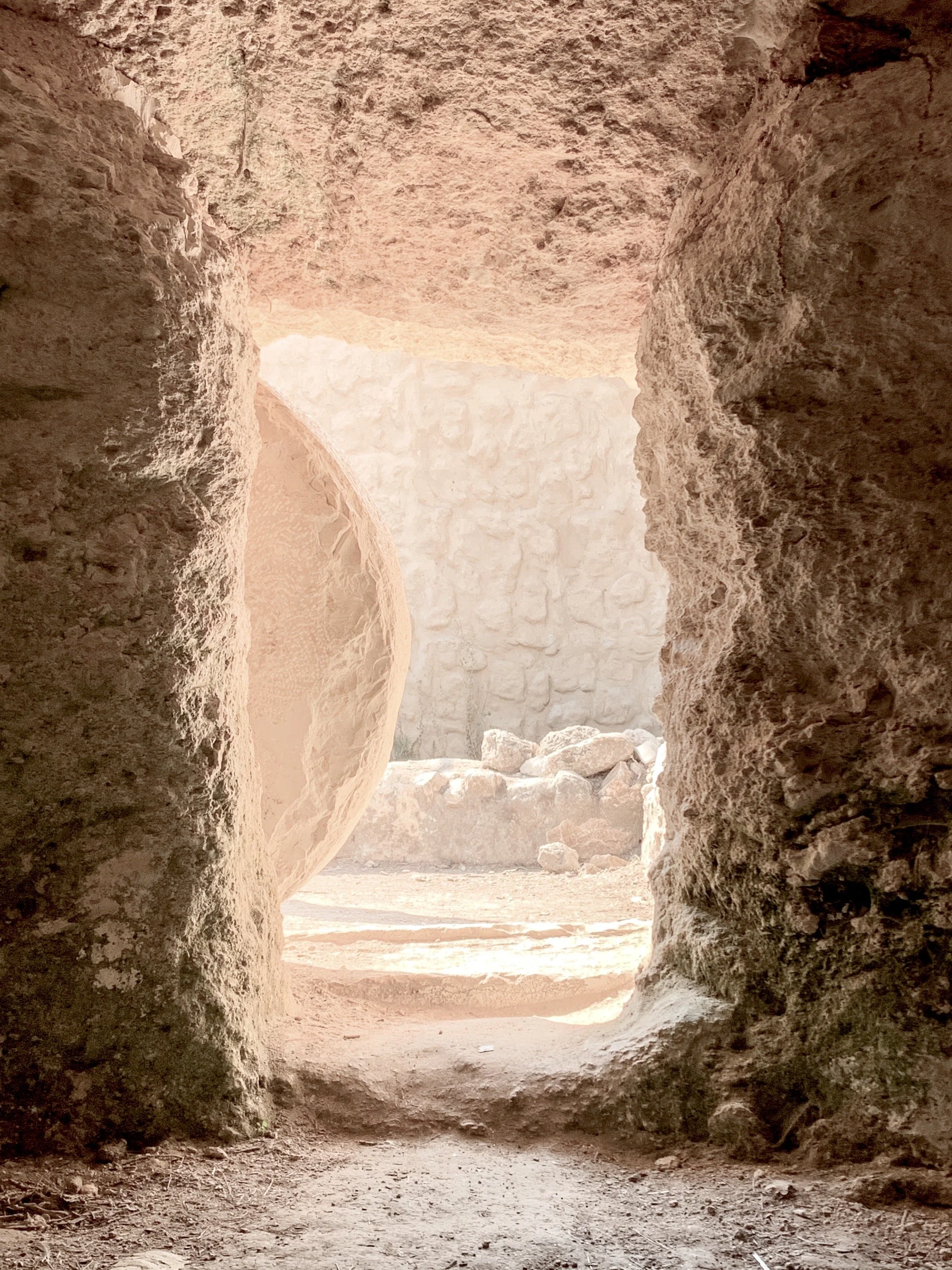Fear and Great Joy
So they departed quickly from the tomb with fear and great joy, and ran to tell his disciples.
– Matthew 28:8
The gospel accounts of the resurrection are shot through with emotions. Big emotions: weeping and distress (John 20:11, 15), being “seized” with astonishment (Mark 16:8), “trembling” with fear (Matt 28:4). Feeling perplexed and marveling (Luke 24:4, 12).
Perhaps it is a side product of my ethnic, generational, or family-of-origin culture, but I am skeptical of feelings. Feelings bother me when they aren’t rational, when I feel a certain way despite lack of identifiable or logical reasons for those feelings. Feelings bother me when they are negative; I tend to assume sadness, distress, anxiety, confusion are things to get out of. They mess too much with my ability to function. They smack too much of selfishness, as when someone in a show described their mother as a Vietnamese immigrant who “thought talking about your feelings was the same thing as complaining.”
We do have to be careful that our emotions aren’t destructive to others, but it is impossible to read the resurrection accounts, to come across the most theologically important event in Scripture, and not be hit by all the feelings. This is no tidy tale, no scientific coroner’s account of a biological miracle. These are people grappling with the worst kind of sorrow and frustrated hopes, with the dawning of an unimagined kind of truth.
Perhaps the most prominent emotion is fear. In all the gospel accounts, people are described as being afraid or frightened; in Matthew and Luke, they are told to “not be afraid” twice, by the angels and by Jesus. I don’t know that we talk much about fear, outside of childhood. It is more acceptable to say that we are anxious, that we tend to control things or dread things, to admit that we rehearse disaster, than to say what often underlies all of that: that we are afraid. We are afraid, like the disciples and the women and the guards, of what we cannot control. We are afraid of things not going as we want them to. We are afraid of others maligning or hurting us or simply not viewing us well. We are afraid of loss, of those we love coming to harm. We are afraid of disappointment, of unfulfilled hopes and expectations.
The fact is, Scripture does not shy away from naming the fear. From staying in dark and despondent places. We can jump so easily from Good Friday to Resurrection Sunday, from the cross to the empty tomb, but Scripture is full of Holy Saturdays, periods of uncertain waitings in dark spaces full of sorrow or fear. Joseph in the pit, the Israelites as the angel of death passed through, David in his valley of the shadow of death, Jonah in the fish, Daniel in the den. Periods of wrenching uncertainty, when all seems lost and confusing, when there doesn’t seem to be any logical explanation or way out. When there is no goodness in view.
It's in and from the darkness that Mary moves towards the tomb, to find it empty (John 20:1). It’s when she returns to cry there, unable to leave even after John and Peter have returned home, that she sees the angels (John 20:11-12). It’s when she admits her sadness and confusion that she recognizes the risen Jesus (John 20:15-16).
Matthew sums this all up when he says that they leave the empty tomb “with fear and great joy” (Matthew 28:9). Who would put those two emotions together? What does it mean to feel real fear, and at the same time, great joy? And yet it is out of one that the other comes. If we stay too busy, too numb, too paralyzed or preoccupied to see and speak and feel our fear for what it is, then we miss the magnitude of joy that God has for us. We miss the kind of joy that compels us to run like the women or worship like the disciples (Matthew 28:9).
Maybe the truth buried in all this is that the joy is like the fear. It is something which comes to us beyond our control, beyond our expectations, beyond what others think of us, despite our logic and through our loss. It is beyond us the same way the fear is, because it is a triumph coming not from ourselves at all but from Jesus dawning into our lives, calling our names as he called Mary’s that morning.






